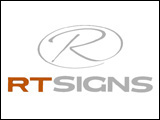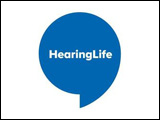Why Steinbach needs a Drug Strategy
Steinbach City Council candidate Chris Summerville says that Steinbach needs to develop a comprehensive, community based strategy to address addictions and substance abuse that would build on existing strengths and increase capacity to prevent and reduce the impact of substance abuse and addictions. Policing alone will not solve the problem he says.
“Research suggests that successful drug strategies across Canada are those which are adopted and endorsed by the municipal governments and use the support of an integrated multi-agency task force that functions through working groups,” states Summerville. “I know the importance of this as a person who grew up in a family of various addictions and as an individual who has personally struggled in this area. Through my work in mental health I regularly consult with individuals and families in Steinbach who are battling the effects of substance use. I teach a workshop to health service providers in how to address mental health problems and drug use simultaneously, besides assisting in workshops in Winnipeg that train RCMP and police officers in how to de-escalate these situations.”
The goal of a Steinbach Drug Strategy would be to significantly reduce substance abuse and addiction and their behavioural, health, social and environment consequences by giving the community tools to prevent substance abuse and addiction. It would seek and build on information about community trends, opportunities, challenges/barriers and community priorities with respect to substance abuse/addiction.
Summerville proposes that the process would include community focus groups, meetings with representatives from various sectors and agencies, including government and non-government agencies, business representatives, numerous stakeholder groups, provincial government departments, the regional health authority, educators, students and education administrators, community groups, addictions workers, municipal authorities, police officers and addictions groups as well as those with substance abuse/addiction problems and their families.
“Substance abuse and addictions have a significant adverse impact on our community. Whether this becomes apparent through personal behaviour, physical health, mental health, social functioning, the ability to work, to be able to care for dependents, to form relationships or through criminal and/or anti-social behaviour, it is of serious concern to all. Identifying and addressing these issues requires changes at all levels across our community,” Summerville says.
Summerville points to the strong links between substance abuse/addiction and criminal activity. Substance dependence, intoxication at the time a crime is committed, and the need to obtain money to buy alcohol or drugs are the reasons why nearly 50 per cent of crime can be attributed to the abuse of drugs and alcohol. “Crimes such as fraud, theft and break and enter are driven by the need to obtain cash, or items which can easily be converted to cash, with which to buy drugs/alcohol to satisfy an addiction. Also, violent crime often results from assaults committed by those who behave irrationally due to drugs/alcohol use or when assaults occur during disputes over illicit drugs and/or the payment for same.” The answer is not just prosecution but also prevention, he states.
Summerville notes that although substance abusers and those who are addicted often try to conceal their problems from family and friends, it is no secret that addictions/substance abuse, in its various manifestations, literally destroys lives, negatively affects our economy and drives crime and social disorder in our community. Individuals, their families, their friends, their workplaces and their faith communities are all inevitably adversely affected. Steinbach is no exception. “Substance abuse, whether it involves legal drugs such as alcohol, prescription drugs and over-the-counter medications, or involves illegal drugs, is more than just an enforcement issue. It is a social issue that requires the integrated response of numerous agencies such as health, justice, education, police, churches and social services as well as the community in general.”
Summerville suggests there be four pillars, similar to Canada’s Drug Strategy, to the Steinbach Drug Strategy.
Prevention
Prevention is a vital part of a drug strategy and it is more than education. Prevention is about taking a proactive approach that includes interventions which seek to prevent the onset of substance use. It includes strengthening the health, social and economic factors that can reduce the risks of substance abuse and addictions. Prevention strategies would tie in closely with other lifestyle and health enhancement programs, such as those of crime prevention, suicide prevention, food security, violence reduction, life skills, and mental health programs. These social issues share not only a number of common “root causes,” but have similar target groups, activities, and settings.
Reducing Harm
Reducing harm is about reducing the harm to individuals and communities that results from the abuse of either legal or illegal drugs. It is about reducing the spread of potentially fatal communicable diseases, preventing deaths due to drug overdose, increasing the contact of substance abusers with health care services and treatment programs and reducing the consumption of drugs.
Healing Continuum
A healing continuum consists of interventions and support programs that enable people with addiction and substance abuse problems to make healthier decisions about their lives and move towards abstinence. This can be achieved by early intervention, treatment, and aftercare services for people and their families affected by an addiction. It is establishing patterns of healthy living by helping people come to terms with substance abuse/addiction and thus lead healthier lives, by offering them access to services such as outpatient and peer-based counselling, drug programs, daytime and residential treatment, housing support, and ongoing medical care, employment services, social programs, and life skills programs.
Community Justice
Community justice is about taking action to ensure public order and safety in our communities by targeting criminal activity, including the sale or use of illicit drugs, and/or the criminal activity that results directly or indirectly from the abuse of drugs. This requires a coordinated approach by all elements of the justice system including police as well as health services and other agencies that are able to link drug and alcohol abusers to withdrawal management (detox), treatment, counselling and prevention services.
“Unless you put a police officer on every corner 24/7 you will not solve the increasing drug and alcohol problems and the misuse of prescription and over-the-counter drugs. A comprehensive, community based drug strategy in which we all take responsibility and ownership is the key. Families in our city are expecting City Council to be pro-active after October 27 in developing a real strategy,” says Summerville. “Our ‘hit and miss’ non-integrative approach is not working and will in fact lead to an increase in the drug and crime problems,” he says.
For further information contact Chris Summerville at 326-9458



